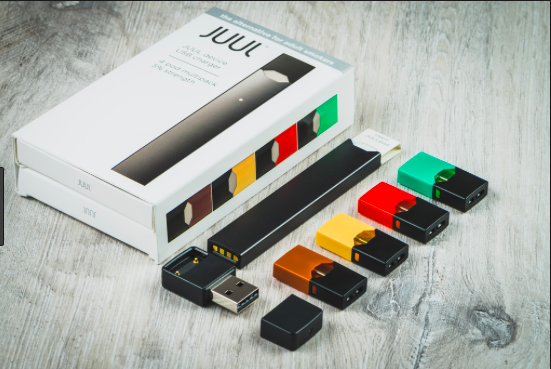
Juul and its supporters reacted instantly to the Board of Supes vote today banning the sale of vaping products, with a flurry of press releases and links to articles suggesting that the board was hypocritical for outlawing the sale of e-cigarettes while allowing the sale of traditional smokes (and of course, cannabis).

I got two press releases within a hour of the vote. The most recent quotes this (really unbalanced) New York Times story, which includes statements from people who clearly don’t understand what’s going on in San Francisco high schools. For example:
“On the face of it, it’s ludicrous that we would ban e-cigarettes, but permit the sale of tobacco and cannabis,” said Dr. Steven A. Schroeder, a professor of health at the University of California, San Francisco. “It’s really smart politics but dubious public health.”
And:
Dr. Michael Siegel, a professor at Boston University’s School of Public Health with vast expertise in tobacco control, authored a blog post about the ban:
Absurdly, the San Francisco Board of Supervisors is allowing the continued, unfettered sale of real cigarettes — the ones that kill more than 400,000 Americans (including more than 40,000 Californians) each year. The nation’s leading brand of cigarettes – which is literally the #1 cause of preventable death in the country – is Marlboro. Due to a giant exemption in the ordinance, Philip Morris will be able to continue selling its deadly Marlboros thanks to the hospitality being shown to the company by the San Francisco Board of Supervisors, which is, ironically, requiring e-cigarettes to gain FDA approval before being sold in the city but not requiring any further assessment or regulation of the safety of Marlboros and other combustible cigarettes.
I am not a doctor or a professor of public health (although I was at a press conference where the most eminent tobacco researcher in the county said he supported the ban). I am, however, a parent, with two kids who have gone through the SF public schools.
I just asked my daughter, who is a junior in high school, how many people she knows who smoke cigarettes. “One,” she said.
How many vape? “Way too many.”
We have, as a society, done an excellent job of convincing teens that smoking traditional cigarettes is a bad idea. By law, the cigarette companies can’t market to young people. Marlboro isn’t cool anymore; cigs are also expensive, thanks to high taxes, and Phillip Morris has largely lost the youth market in the United States.
We don’t need to ban Marlboros to keep kids from smoking. That’s already happened.
But the vaping industry has been aggressively marketing to the youth sector, and has been very effective in hooking this generation on nicotine. The scary fact is that the studies show once kids get into vaping, they are more likely to take up Marlboros later – undermining years of educational efforts and billions of dollars in prevention techniques that were actually paying off.
Juul, owned in part by Big Tobacco, can’t grow enough market share just by marketing to existing smokers who want to quit or switch to vaping. The company – like anyone who is selling an addictive product – needs to get new users when they are young. That’s why the industry launched with flavored products that no adult smoker would be interested in.
I know this is all complicated, and if adults want to vape, that’s their business (and you know what? They can go to Daly City and buy Juul stuff). But the ban in SF is all about protecting kids.
And as I have said before, if Juul had never marketed to teenagers, this wouldn’t be an issue. But that happened, and it’s a serious problem, and it’s entirely unrelated to the fact that the city still allows tobacco products that don’t appeal to (and are not marketed to) kids on the shelves.
And anyone who thinks this has anything to do with cannabis is smoking the wrong thing.

